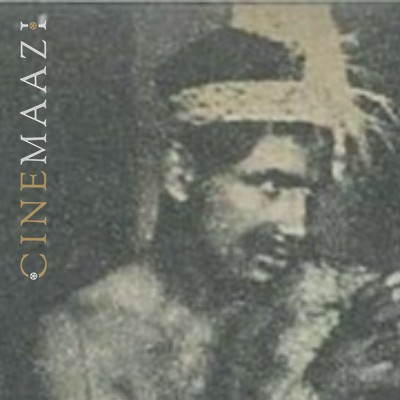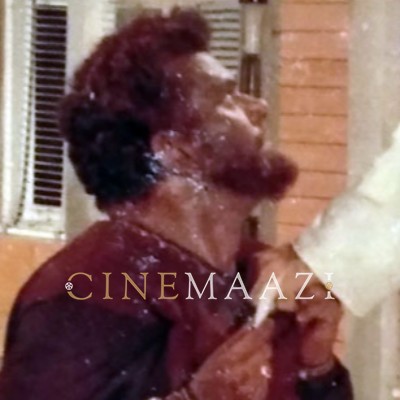Jagmohan Sursagar

Subscribe to read full article
This section is for paid subscribers only. Our subscription is only $37/- for one full year.
You get unlimited access to all paid section and features on the website with this subscription.
Not ready for a full subscription?
You can access this article for $2 , and have it saved to your account for one year.
- Real Name: Jaganmoy Mitra
- Born: 6 September, 1918 (West Bengal)
- Died: 3 September, 2003 (Mumbai)
- Primary Cinema: Hindi
Padma Shri award-winning singer and music composer Jagmohan Sursagar was active in the field of music for approximately six decades, between 1938 and 1999. A proponent Indian classical music, he had immense dedication for the craft, which is demonstrated through his immortal songs. He had a great gift of voice and voice control, with most of his songs evoking sentimental emotions and pathos. In the realm of film music, he composed the music of Sardar (1955) directed by Gyan Mukherjee; he is perhaps most renowned for his composition, Pyar ki yeh talkhiyan rendered by Lata Mangeshkar in the film. He also lent his voice to many film and non-film songs for the well-known Bengali music composer Kamal Dasgupta, of which O varsha ke pahale badal from Meghdoot (1945) is perhaps most popular. On India’s first Independence Day in 1947, he was invited to sing India's national song, Vande Matram. He performed across many platforms, including the Yadein show, organised by Sangeet Manjari in 1971, singing alongside many old time singers. In 1999, he was awarded the Padma Shri, the fourth highest civilian award by the Government of India. Indian music company Saregama released a collection of his songs, under the title, The Best Of Sursagar Jagmohan, featuring 21 tracks of the singer-composer who preferred to keep away from the crowd.
He was born Jaganmoy Mitra on 6 September, 1918, into a landowning family. His father had died two months before his birth in Chetla Kolkatta. He was raised by his mother and grandfather. Passing his matriculation exam in 1930, which was considered a high enough degree back in the day, to secure good employment. However, Jaganmoy’s interest in music led him to explore a different path. Though music had never been taught to him in the past, his interest had grown via his cousins at Allahabad, the children of his father’s sister. It was here that he started learning music systematically, as well as the tabla.
Participating in Bengal music competitions, he not only performed well but shone in singing Dhrupad, Tappa, Thumri, Kirtan and religious music. He went on to join All India Radio in Calcutta in 1931. When he participated in and won an all India classical music competition, his fame spread across the country. Incidentally, as the newspapers that covered this event printed his name as Jagmohan instead of the original Jaganmoy Mitra, the former became the name he came to be popularly known by.
Jagmohan trained in classical music under Ustad Zamiruddin Khansaheb, Master Gama, Sambhu Maharaj, Dilipkumar Roy and Vishvanath Chetterjee. It was while he was learning Thumri from Sambhu Maharaj, that he met the well-known actor-singer K L Saigal, who also came to learn Babul mora for recording in the film Street Singer (1938).
More avenues opened up for Jagmohan, when he was called by HMV to meet the renowned poet Kazi Nazrul Islam. Asked to sing a song, Jagmohan rendered a song which he had both written and composed himself. He also performed a Bengali song, Sawon o rate judi swarn yeaashemori. This song, recorded under his original name Jaganmoy Mitra, brought him instant popularity, and the record became a bestseller.
Personal tragedy struck, when, while he was in his early 20s, he lost his grandfather, who was very dear to him. This tragedy sapped his interest in life and music. He was consoled and encouraged by Kazi Nazrul Islam to preserve the grief in his heart, which will one day find expression through his voice in his songs.
HMV’s decision to record Jagmohan’s songs in Hindi and Urdu brought him popularity across India, especially in Gujarat, MP, UP and Punjab. This led to him being conferred the precious title of Sur Sagar (Ocean of Music) in 1945 by an established group of classical pundits of Calcutta.
Participating in India’s freedom struggle, he interacted closely with Mahatma Gandhi. On the inspiration and advice of Gandhijii, Jagmohanji created a record especially for youngsters on Sapta Kand Ramayan. When India won Independence, Jagmohan was one of the singers who recorded Vande Mataram on Independence Day in 1947.
His work in films saw him singing a few songs for New Theatre's films such as Jawab(1942) directed by P C Barua, while his song in the film Meghdoot (1945) - O barsake pahele badal won widespread praise. Invited to Bombay by film producer V Shantaram in the mid-50s, he made the move to the film hub. Here, he came in contact with famous producers such as Gyan Mukherjee, who assigned him the music of his film Sardar, which starred Bina Rai, Nigar Sultana and Ashok Kumar. The film, which released in 1955, included the song Pyarki ye talkiyan, which became very popular. It retained the top spot for many weeks on Amin Sayani’s show, Binaca Geetmala. On some occasions, Jagmohan was also said to have given tune to the poetry of former Prime Minister Atal Behari Vajpayee, who was an admirer of Sursagar’s.
Jagmohan Sursagar’s interests included social work, and gardening. He started a youth club to promote cricket and badminton, and also started the Juhu Cultural Association when he was 79 years of age. His wife was also a singer. Honoured with the Padma Shri for his contribution to the arts in 1999, Jagmohan Sursagar passed away on 3 September, 2003 following a brief illness.










.jpg)



